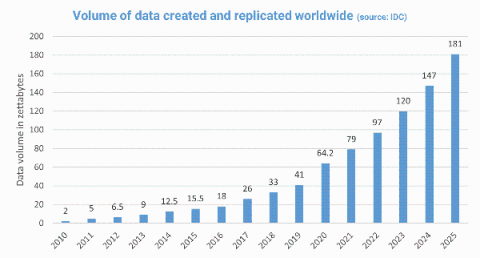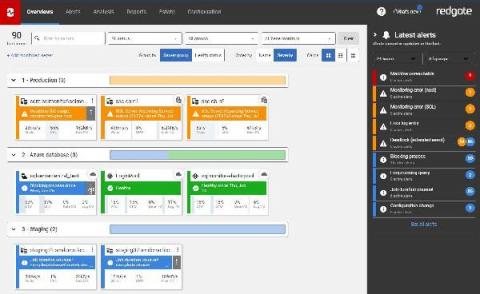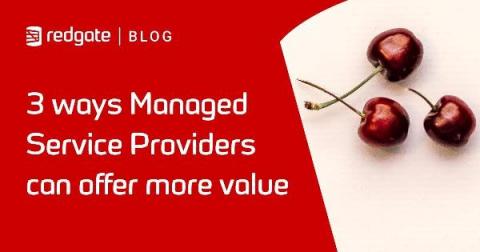What's the real story behind the explosive growth of data?
You may have read or heard about IDC’s recent Global DataSphere Forecast, 2021-2025, which predicts that global data creation and replication will experience a compound annual growth rate (CAGR) of 23% over the forecast period, leaping to 181 zettabytes in 2025. That’s up from 64.2 zettabytes of data in 2020 which, in turn, is a tenfold increase from the 6.5 zettabytes in 2012.











